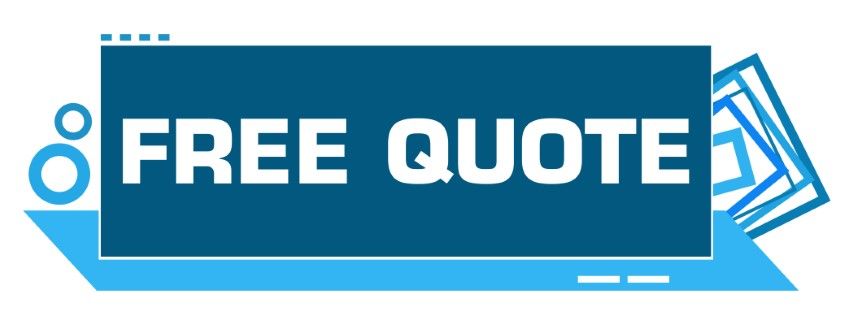CALL US NOW: (555) 555-5555
Student Loan Consolidation
in Tucson AZ
Escape the Debt Trap: Consolidate and Reclaim Your Financial Peace!
Take the first step towards financial freedom →
Tucson Debt Consolidation
Student loan consolidation refers to the process of combining several student loans into one new loan. This new loan comes with a single monthly payment, which can simplify your finances. Instead of juggling multiple payments and due dates, you handle just one. This can help streamline your repayment plan and possibly reduce the stress associated with managing multiple debts.
What are the Types?
There are a few different types of student loan consolidation available:
- Federal Student Loan Consolidation: This involves merging federal student loans into a Direct Consolidation Loan. It is a straightforward process and can make managing federal loans easier by combining them into one monthly payment.
- Private Student Loan Consolidation: Private lenders offer consolidation options for private student loans. This process is handled by private financial institutions and might include different terms and conditions compared to federal consolidations.
- Federal and Private Loan Consolidation: Some lenders offer services to consolidate both federal and private loans. This can be useful if you have a mix of federal and private loans and want to simplify your repayment.
The Consolidation Process
The process for consolidating student loans generally involves several steps:
- Assessment: Evaluate your current student loans to determine which ones you want to consolidate. This can include federal loans, private loans, or a combination.
- Application: Apply for consolidation through a federal loan servicer or a private lender. For federal loans, this is done through the Direct Consolidation Loan program. For private loans, you’ll need to work with a private financial institution.
- Approval and Disbursement: Once approved, the new lender pays off your existing loans. You then start making payments on the new consolidated loan according to the terms you’ve agreed upon.
- Repayment: After consolidation, you will have a single monthly payment to manage. Your new lender will provide details on the repayment schedule and terms.

We will get back to you as soon as possible.
Please try again later.
Pros
- Simplified payments: With only one loan and one payment, managing your debt becomes easier.
- Potential for lower payments: Consolidation might extend your repayment term, which can reduce your monthly payments.
- Eligibility for different repayment plans: For federal consolidations, you may qualify for various repayment plans and loan forgiveness programs.
Cons:
- Possible increase in total interest: Extending the repayment term might result in paying more interest over the life of the loan.
- Loss of borrower benefits: Some federal loans have benefits like interest rate reductions for automatic payments, which may be lost upon consolidation.
- Private loan consolidation terms vary: Private lenders may offer less favorable terms compared to federal options.
What are the Benefits?
Student loan consolidation can offer several benefits:
- Streamlined Finances: One monthly payment simplifies your budget and can reduce the risk of missed payments.
- Flexible Repayment Options: Federal consolidations offer various repayment plans, including income-driven options.
- Potential Lower Monthly Payments: By extending the loan term, your monthly payment could be reduced, easing your financial burden.
Credit History
For federal student loan consolidation, your credit history does not affect eligibility. However, if you are considering consolidating private loans, credit history becomes important. Lenders will evaluate your credit score and financial history to determine the terms of the consolidation loan.
Loan Balance Requirements
There are no minimum or maximum loan balance requirements for federal student loan consolidation. However, private lenders might have their own criteria regarding loan amounts for consolidation.
If you considering
student loan consolidation in Tucson, AZ, our team is here to help. We offer personalized guidance to ensure you understand your options and choose the best path for managing your student debt. Reach out to us today to learn more about our services and how we can assist you in achieving a more manageable repayment plan.
Eligibility Requirements for Consolidating Student Loans
Student loan consolidation is a helpful option for many borrowers looking to simplify their debt management. By consolidating, you can combine multiple federal student loans into a single loan with one monthly payment. However, not everyone may qualify, and understanding the eligibility criteria can help you make an informed decision.
Type of Loans
To consolidate student loans, they generally need to be federal loans. Federal loans include Direct Subsidized and Unsubsidized Loans, PLUS Loans, and Perkins Loans. Private student loans, however, are not eligible for federal consolidation. If you have private loans, you might need to explore private consolidation or refinancing options through private lenders.
Loan Status
Your loans must be in a qualifying status. For federal student loan consolidation through a Direct Consolidation Loan, the loans must either be in repayment or in a grace period. If your loans are in default, you might need to make satisfactory repayment arrangements before you can consolidate them.
Number of Loans
There is no minimum or maximum number of loans required for consolidation. Whether you have a single loan or several, you can consolidate them. However, consolidating only some of your loans may lead to a more complex repayment plan.
Repayment Plan Selection
When consolidating, you will need to choose a repayment plan. Federal student loan consolidation offers several repayment plans, including Income-Driven Repayment Plans and the Standard Repayment Plan. Your choice will affect your monthly payment amount and the total interest you pay over the life of the loan.
Loan Consolidation Process
The process of consolidating student loans involves applying through the federal government’s Direct Consolidation Loan program. You will need to provide information about your loans and choose a servicer. The application process is straightforward, but it’s important to review all terms and conditions before finalizing your consolidation.
Impact on Loan Benefits
Consolidation can impact certain benefits associated with your loans. For example, if you have any loans with borrower benefits such as interest rate discounts or principal rebates, you may lose these benefits after consolidation. It’s essential to weigh the benefits of consolidation against the potential loss of any existing loan perks.
Interest Rates
The interest rate on a Direct Consolidation Loan is a weighted average of the interest rates on the loans being consolidated, rounded up to the nearest one-eighth percent. This rate is fixed for the life of the loan. Understanding how this rate is calculated can help you assess whether consolidation will be beneficial for your financial situation.

In conclusion, student loan consolidation can be a strategic move for simplifying your payments and potentially reducing your monthly financial burden. By meeting the eligibility criteria and carefully considering the impact of consolidation on your loan benefits and repayment plan, you can make an informed decision that aligns with your financial goals.
Is Student Loan Consolidation a Good Fit? How to Make the Decision
Student loan consolidation can be a useful tool for managing multiple loans, but it's not the best option for everyone. If you're considering this option, it’s important to evaluate whether it fits your financial situation and goals. Here’s a guide to help you decide if student loan consolidation is right for you.
Understanding Student Loan Consolidation
Student loan consolidation involves combining several federal or private student loans into a single loan with a new interest rate. The main benefits often include simplified payments, potentially lower monthly payments, and access to different repayment plans.
Assess Your Current Loans
Start by reviewing all your existing loans. List the types of loans you have, their interest rates, and current balances. This will give you a clear picture of what you’re working with and how consolidation might impact your overall loan situation.
Evaluate the Benefits
Consider the advantages of consolidation. For federal loans, consolidation can offer a fixed interest rate based on the weighted average of your current loans. It also allows for easier management with just one monthly payment. Additionally, consolidation might provide access to new repayment plans or loan forgiveness programs.
Review Potential Drawbacks
While consolidation can simplify your loan payments, it also has potential downsides. For federal loans, consolidating can sometimes result in a longer repayment term, which may increase the total interest paid over the life of the loan. Additionally, some benefits associated with your current loans, like certain types of loan forgiveness or income-driven repayment plans, might be lost if you consolidate.
Consider Your Financial Goals
Think about your long-term financial goals. If reducing your monthly payments is crucial for your budget, consolidation might help. However, if you’re aiming to pay off your loans as quickly as possible or are focusing on minimizing total interest, consolidation might not align with these goals.
Explore Alternative Options
Before committing to consolidation, explore other options. For instance, refinancing could offer a lower interest rate and save you money if you have good credit and stable income. Additionally, if you have federal loans, you might benefit from an income-driven repayment plan or loan forgiveness programs without consolidating.
Seek Professional Advice
If you’re unsure, consider speaking with a financial advisor or student loan counselor. They can provide personalized advice based on your specific situation and help you understand all the potential implications of consolidation.

Deciding whether student loan consolidation is right for you involves careful consideration of your current loans, financial goals, and available options. By thoroughly evaluating these factors and seeking professional advice if needed, you can make an informed decision that best suits your needs.
LET'S CONNECT!
Our goal is to help you manage and reduce your debt more effectively. By consolidating multiple debts into a single loan, we simplify your payments and potentially lower your interest rates. Our experienced team works closely with you to understand your unique financial situation and tailor a consolidation plan that meets your needs. Whether you are dealing with credit card debt, personal loans, or other financial obligations, we are here to provide support and solutions. Contact us today to learn more about how we can assist you.